Sir Hereward and Mister Fitz Go to War Again shamf-1 Read online
Sir Hereward and Mister Fitz Go to War Again
( Sir Hereward and Mister Fitz - 1 )
Garth Nix
Garth Nix was born in 1963 in Melbourne, Australia. A full-time writer since 2001, he has previously worked as a literary agent, marketing consultant, book editor, book publicist, book sales representative, bookseller, and as a part-time soldier in the Australian Army Reserve. Garth’s books include the award-winning fantasy novels Sabriel, Lirael and Abhorsen; and the cult favourite YA SF novel Shade’s Children. His fantasy novels for children include The Ragwitch; the six books of The Seventh Tower sequence, and The Keys to the Kingdom series. More than five million copies of his books have been sold around the world; his books have appeared on the bestseller lists of The New York Times, Publishers Weekly, The Guardian and The Australian; and his work has been translated into 37 languages. He lives in a Sydney beach suburb with his wife and two children.
Editors’ note:
‘Sir Hereward and Mister Fitz Go to War Again’ won the Aurealis Award for Best Fantasy Story of 2007.
Sir Hereward and Mister Fitz Go to War Again
Garth Nix
“Do you ever wonder about the nature of the world, Mister Fitz?” asked the foremost of the two riders, raising the three-barred visor of his helmet so that his words might more clearly cross the several feet of space that separated him from his companion, who rode not quite at his side.
“I take it much as it presents itself, for good or ill, Sir Hereward,” replied Mister Fitz. He had no need to raise a visor, for he wore a tall lacquered hat rather than a helmet. It had once been taller and had come to a peak, before encountering something sharp in the last battle but two the pair had found themselves engaged in. This did not particularly bother Mister Fitz, for he was not human. He was a wooden puppet given the semblance of life by an ancient sorcery. By dint of propinquity, over many centuries a considerable essence of humanity had been absorbed into his fine-grained body, but attention to his own appearance or indeed vanity of any sort was still not part of his persona.
Sir Hereward, for the other part, had a good measure of vanity and in fact the raising of the three-barred visor of his helmet almost certainly had more to do with an approaching apple seller of comely appearance than it did with a desire for clear communication to Mister Fitz.
The duo were riding south on a road that had once been paved and gloried in the name of the Southwest Toll Extension of the Lesser Trunk. But its heyday was long ago, the road being even older than Mister Fitz. Few paved stretches remained, but the tightly compacted understructure still provided a better surface than the rough soil of the fields to either side.
The political identification of these fallow pastures and the occasional once-coppiced wood they passed was not clear to either Sir Hereward or Mister Fitz, despite several attempts to ascertain said identification from the few travellers they had encountered since leaving the city of Rhool several days before. To all intents and purposes, the land appeared to be both uninhabited and untroubled by soldiery or tax collectors and was thus a void in the sociopolitical map that Hereward held uneasily, and Fitz exactly, in their respective heads.
A quick exchange with the apple seller provided only a little further information, and also lessened Hereward’s hope of some minor flirtation, for her physical beauty was sullied by a surly and depressive manner. In a voice as sullen as a three-day drizzle, the woman told them she was taking the apples to a large house that lay out of sight beyond the nearer overgrown wood. She had come from a town called Lettique or Letiki that was located beyond the lumpy ridge of blackish shale that they could see a mile or so to the south. The apples in question had come from farther south still, and were not in keeping with their carrier, being particularly fine examples of a variety Mister Fitz correctly identified as emerald brights. There was no call for local apples, the young woman reluctantly explained. The fruit and vegetables from the distant oasis of Shûme were always preferred, if they could be obtained. Which, for the right price, they nearly always could be, regardless of season.
Hereward and Fitz rode in silence for a few minutes after parting company with the apple seller, the young knight looking back not once but twice as if he could not believe that such a vision of loveliness could house such an unfriendly soul. Finding that the young woman did not bother to look back at all, Hereward cleared his throat and, without raising his visor, spoke.
“It appears we are on the right road, though she spoke of Shumey and not Shome.”
Fitz looked up at the sky, where the sun was beginning to lose its distinct shape and ooze red into the shabby grey clouds that covered the horizon.
“A minor variation in pronunciation,” he said. “Should we stop in Lettique for the night, or ride on?”
“Stop,” said Hereward. “My rear is not polished sandalwood, and it needs soaking in a very hot bath enhanced with several soothing essences . . . ah . . . that was one of your leading questions, wasn’t it?”
“The newspaper in Rhool spoke of an alliance against Shûme,” said Mister Fitz carefully, in a manner that confirmed Hereward’s suspicion that didactic discourse had already begun. “It is likely that Lettique will be one of the towns arrayed against Shûme. Should the townsfolk discover we ride to Shûme in hope of employment, we might find ourselves wishing for the quiet of the fields in the night, the lack of mattresses, ale and roasted capons there notwithstanding.”
“Bah!” exclaimed Hereward, whose youth and temperament made him tend toward careless optimism. “Why should they suspect us of seeking to sign on with the burghers of Shûme?”
Mister Fitz’s pumpkin-sized papier-mâché head rotated on his spindly neck, and the blobs of blue paint that marked the pupils of his eyes looked up and down, taking in Sir Hereward from toe to head: from his gilt-spurred boots to his gold-chased helmet. In between boots and helm was Hereward’s second-best buff coat, the sleeves still embroidered with the complicated silver tracery that proclaimed him as the Master Artillerist of the city of Jeminero. Not that said city was any longer in existence, as for the past three years it had been no more than a mass grave sealed with the rubble of its once-famous walls. Around the coat was a frayed but still quite golden sash, over that a rare and expensive Carnithian leather baldric and belt with two beautifully ornamented (but no less functional for that) wheel-lock pistols thrust through said belt. Hereward’s longer-barrelled and only slightly less ornamented cavalry pistols were holstered on either side of his saddle horn, his sabre with its sharkskin grip and gleaming hilt of gilt brass hung in its scabbard from the rear left quarter of his saddle, and his sighting telescope was secured inside its leather case on the right rear quarter.
Mister Fitz’s mount, of course, carried all the more mundane items required by their travels. All three feet six and a half inches of him (four-foot-three with the hat) was perched upon a yoke across his mount’s back that secured the two large panniers that were needed to transport tent and bedding, washing and shaving gear and a large assortment of outdoor kitchen utensils. Not to mention the small but surprisingly expandable sewing desk that contained the tools and devices of Mister Fitz’s own peculiar art.
“Shûme is a city, and rich,” said Fitz patiently. “The surrounding settlements are mere towns, both smaller and poorer, which are reportedly planning to go to war against their wealthy neighbour. You are obviously a soldier for hire, and a self-evidently expensive one at that. Therefore, you must be en route to Shûme.”
Hereward did not answer immediately, as was his way, while he worked at overcoming his resentment at being told what to do. He w
orked at it because Mister Fitz had been telling him what to do since he was four years old and also because he knew that, as usual, Fitz was right. It would be foolish to stop in Lettique.
“I suppose that they might even attempt to hire us,” he said, as they topped the low ridge, shale crunching under their mounts’ talons.
Hereward looked down at a wasted valley of underperforming pastures filled either with sickly-looking crops or passive groups of too-thin cattle. A town—presumably Lettique—lay at the other end of the valley. It was not an impressive ville, being a collection of perhaps three or four hundred mostly timber and painted-plaster houses within the bounds of a broken-down wall to the west and a dry ravine, that might have once held a river, to the east. An imposing, dozen-spired temple in the middle of the town was the only indication that at some time Lettique had seen more provident days.
“Do you wish to take employment in a poor town?” asked Mister Fitz. One of his responsibilities was to advise and positively influence Hereward, but he did not make decisions for him.
“No, I don’t think so,” replied the knight slowly. “Though it does make me recall my thought . . . the one that was with me before we were interrupted by that dismal apple seller.”
“You asked if I ever wondered at the nature of the world,” prompted Fitz.
“I think what I actually intended to say,” said Hereward. “Is ‘do you ever wonder why we become involved in events that are rather more than less of importance to rather more than less people?’ as in the various significant battles, sieges, and so forth in which we have played no small part. I fully comprehend that in some cases the events have stemmed from the peculiar responsibilities we shoulder, but not in all cases. And that being so, and given my desire for a period of quiet, perhaps I should consider taking service with some poor town.”
“Do you really desire a period of quiet?” asked Mister Fitz.
“Sometimes I think so. I should certainly like a time where I might reflect upon what it is I do want. It would also be rather pleasant to meet women who are not witch-agents, fellow officers or enemies—or who have been pressed into service as powder monkeys or are soaked in blood from tending the wounded.”
“Perhaps Shûme will offer some relative calm,” said Mister Fitz. “By all accounts it is a fine city, and even if war is in the offing, it could be soon finished if Shûme’s opponents are of a standard that I can see in Lettique.”
“You observe troops?” asked Hereward. He drew his telescope, and carefully leaning on his mount’s neck to avoid discomfort from the bony ridges (which even though regularly filed-down and fitted with leather stocks were not to be ignored), looked through it at the town. “Ah, I see. Sixty pike and two dozen musketeers in the square by the temple, of no uniform equipment or harness. Under the instruction of a portly individual in a wine-dark tunic who appears as uncertain as his troops as to the drill.”
“I doubt that Shûme has much to fear,” said Mister Fitz. “It is odd, however, that a town like Lettique would dare to strike against such a powerful neighbour. I wonder . . .”
“What?” asked Hereward as he replaced his telescope.
“I wonder if it is a matter of necessity. The river is dry. The wheat is very thin, too thin this close to harvest. The cattle show very little flesh on their ribs. I see no sign of any other economic activity. Fear and desperation may be driving this mooted war, not greed or rivalry. Also . . .”
Mister Fitz’s long, pale blue tongue darted out to taste the air, the ruby stud in the middle of what had once been a length of stippled leather catching the pallid sunlight.
“Their godlet is either asleep or . . . mmm . . . comatose in this dimension. Very strange.”
“Their god is dead?”
“Not dead,” said Mister Fitz. “When an other-dimensional entity dies, another always moves in quickly enough. No . . . definitely present, but quiescent.”
“Do you wish to make a closer inquiry?”
Hereward had not missed the puppet’s hand tapping the pannier that contained his sewing desk, an instinctive movement Mister Fitz made when contemplating sorcerous action.
“Not for the present,” said Mister Fitz, lifting his hand to grasp once again his mount’s steering chains.
“Then we will skirt the town and continue,” announced Hereward. “We’ll leave the road near those three dead trees.”
“There are many trees that might be fairly described as dead or dying,” remarked Fitz. “And several in clumps of three. Do you mean the somewhat orange-barked trio over yonder?”
“I do,” said Hereward.
They left the road at the clump of trees and rode in silence through the dry fields, most of which were not even under attempted cultivation. There were also several derelict farmhouses, barns, and cattle yards, the level of decay suggesting that the land had been abandoned only in recent years.
Halfway along the valley, where the land rose to a slight hill that might have its origin in a vast and ancient burial mound, Hereward reined in his mount and looked back at the town through his telescope.
“Still drilling,” he remarked. “I had half thought that they might dispatch some cavalry to bicker with us. But I see no mounts.”
“I doubt they can afford the meat for battlemounts,” said Mister Fitz. “Or grain for horses, for that matter.”
“There is an air gate in the northeastern temple spire,” said Hereward, rebalancing his telescope to get a steadier view. “There might be a moonshade roost behind it.”
“If their god is absent, none of the ancient weapons will serve them,” said Mister Fitz. “But it would be best to be careful, come nightfall. Lettique is reportedly not the only town arrayed against Shûme. The others may be in a more vigorous condition, with wakeful gods.”
Hereward replaced his telescope and turned his mount to the north, Mister Fitz following his lead. They did not speak further, but rode on, mostly at the steady pace that Hereward’s Zowithian riding instructor had called ‘the lope’, occasionally urging their mounts to the faster ‘jag’. In this fashion, several miles passed quickly. As the sun’s last third began to slip beneath the horizon, they got back on the old road again, to climb out of the wasted valley of Lettique and across yet another of the shale ridges that erupted out of the land like powder-pitted keloid scars, all grey and humped.
The valley that lay beyond the second ridge was entirely different from the faded fields behind the two travellers. In the warm twilight, they saw a checkerboard of green and gold, full fields of wheat interspersed with meadows heavily stocked with fat cattle. A broad river wound through from the east, spilling its banks in several places into fecund wetlands that were rich with waterfowl. Several small hillocks in the valley were covered in apple trees, dark foliage heavily flecked with the bright green of vast quantities of emerald fruit. There were citrus groves too, stone-walled clumps of smaller trees laden with lemons or limes, and only a hundred yards away, a group of six trees bearing the rare and exquisite blue-skinned fruit known as serqa which was normally only found in drier climes.
“A most pleasant vista,” said Hereward. A small smile curled his lip and touched his eyes, the expression of a man who sees something that he likes.
Shûme itself was a mile away, built on a rise in the ground in the northwestern corner of the valley, where the river spread into a broad lake that lapped the city’s western walls. From the number of deep-laden boats that were even now rowing home to the jetties that thronged the shore, the lake was as well stocked with fish as the valley was with livestock and produce.
Most of the city’s buildings were built of an attractively pale yellow stone, with far fewer timber constructions than was usual for a place that Hereward reckoned must hold at least five thousand citizens.
Shûme was also walled in the same pale stone, but of greater interest to Hereward were the more recent earthworks that had been thrown up in front of the old wall. A zigzag line of revetments enci
rcled the city, with respectably large bastions at each end on the lakeshore. A cursory telescopic examination showed several bronze demicannon on the bastions and various lesser pieces of ordnance clustered in groups at various strong points along the earthworks. Both bastions had small groups of soldiery in attendance on the cannon, and there were pairs of sentries every twenty or thirty yards along the earthen ramparts and a score or more walked the stone walls behind.
“There is certainly a professional in charge here,” observed Hereward. “I expect . . . yes . . . a cavalry piquet issues from yonder orchard. Twelve horse troopers under the notional command of a whey-faced cornet.”
“Not commonplace troopers,” added Mister Fitz. “Dercian keplars.”
“Ah,” said Hereward. He replaced his telescope, leaned back a little and across and, using his left hand, loosened his sabre so that an inch of blade projected from the scabbard. “They are in employment, so they should give us the benefit of truce.”
“They should,” conceded Mister Fitz, but he reached inside his robe to grasp some small item concealed under the cloth. With his other hand he touched the brim of his hat, releasing a finely woven veil that covered his face. To casual inspection he now looked like a shrouded child, wearing peculiar papery gloves. Self-motivated puppets were not great objects of fear in most quarters of the world. They had once been numerous, and some few score still walked the earth, almost all of them entertainers, some of them long remembered in song and story.
Mister Fitz was not one of those entertainers.
“If it comes to it, spare the cornet,” said Hereward, who remembered well what it was like to be a very junior officer, whey-faced or not.
Mister Fitz did not answer. Hereward knew as well as he that if it came to fighting, and the arts the puppet employed, there would be no choosing who among those who opposed them lived or died.

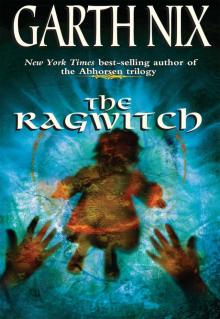 The Ragwitch
The Ragwitch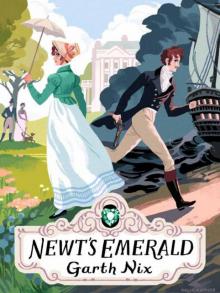 Newt's Emerald
Newt's Emerald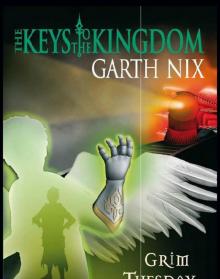 Grim Tuesday
Grim Tuesday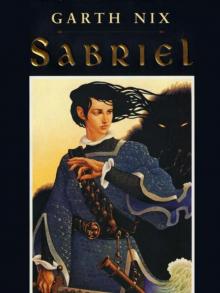 Sabriel
Sabriel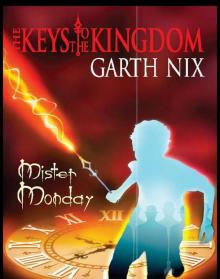 Mister Monday
Mister Monday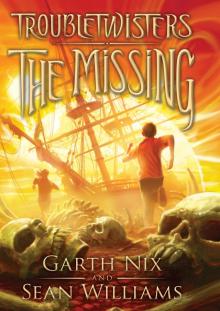 The Missing
The Missing The Fall
The Fall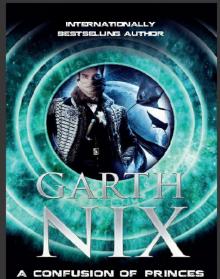 A Confusion of Princes
A Confusion of Princes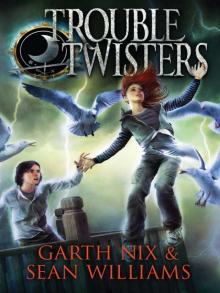 Troubletwisters
Troubletwisters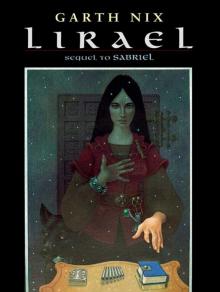 Lirael
Lirael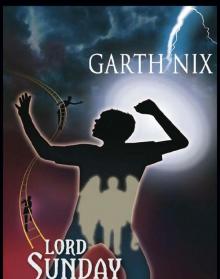 Lord Sunday
Lord Sunday Clariel
Clariel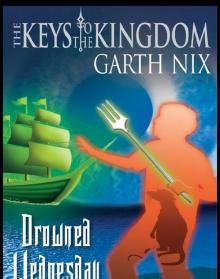 Drowned Wednesday
Drowned Wednesday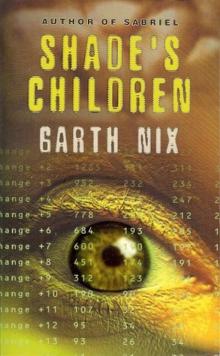 Shade's Children
Shade's Children The Violet Keystone
The Violet Keystone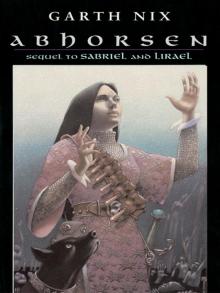 Abhorsen
Abhorsen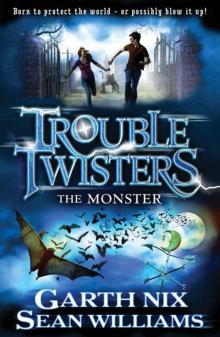 The Monster
The Monster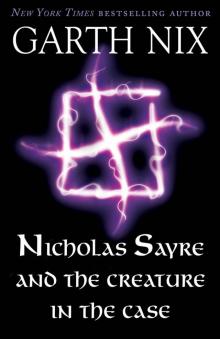 The Creature in the Case
The Creature in the Case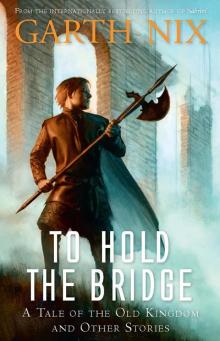 To Hold the Bridge
To Hold the Bridge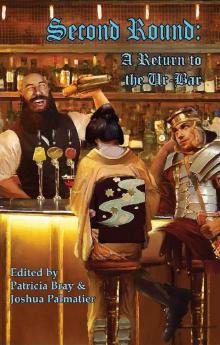 Second Round: A Return to the Ur-Bar
Second Round: A Return to the Ur-Bar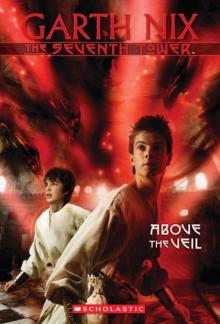 Above the Veil
Above the Veil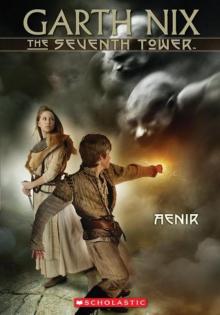 Aenir
Aenir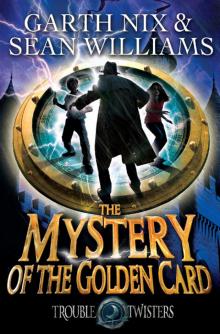 Mystery of the Golden Card
Mystery of the Golden Card Superior Saturday
Superior Saturday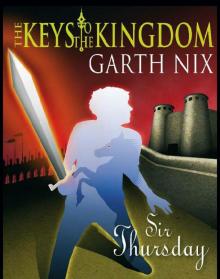 Sir Thursday
Sir Thursday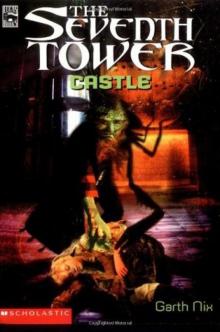 Castle
Castle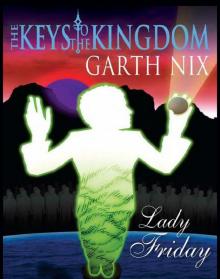 Lady Friday
Lady Friday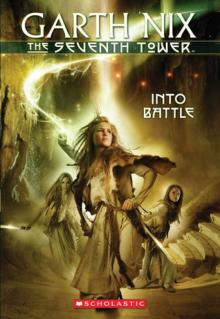 Into Battle
Into Battle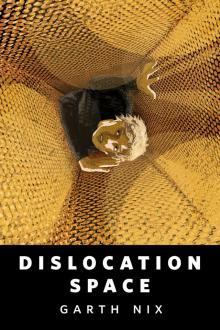 Dislocation Space
Dislocation Space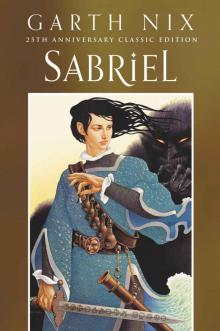 Sabriel (Old Kingdom Book 1)
Sabriel (Old Kingdom Book 1) Sir Hereward and Mister Fitz Go to War Again shamf-1
Sir Hereward and Mister Fitz Go to War Again shamf-1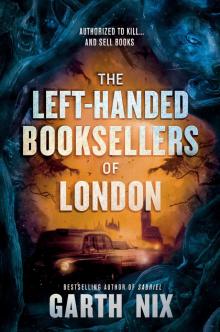 The Left-Handed Booksellers of London
The Left-Handed Booksellers of London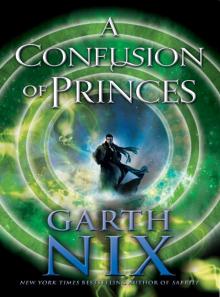 Novel - A Confusion of Princes
Novel - A Confusion of Princes One Beastly Beast
One Beastly Beast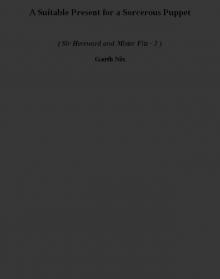 A Suitable Present for a Sorcerous Puppet shamf-3
A Suitable Present for a Sorcerous Puppet shamf-3 Beyond the Sea Gates of the Scholar Pirates of Sarsköe shamf-2
Beyond the Sea Gates of the Scholar Pirates of Sarsköe shamf-2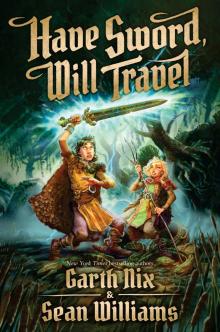 Have Sword, Will Travel
Have Sword, Will Travel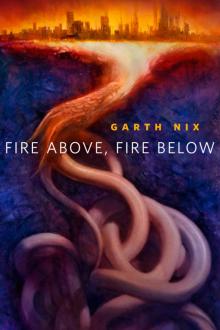 Fire Above, Fire Below
Fire Above, Fire Below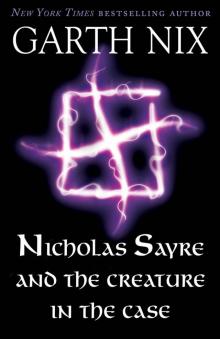 Nicholas Sayre and the Creature in the Case
Nicholas Sayre and the Creature in the Case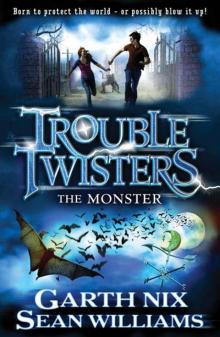 The Monster (Troubletwisters)
The Monster (Troubletwisters)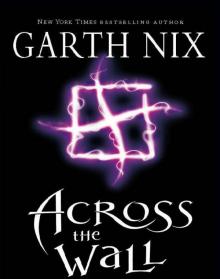 Across the Wall
Across the Wall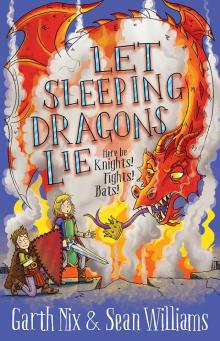 Let Sleeping Dragons Lie
Let Sleeping Dragons Lie![[Abhorsen 03a] - Across the Wall Read online](http://i1.bookreadfree.com/i2/04/12/abhorsen_03a_-_across_the_wall_preview.jpg) [Abhorsen 03a] - Across the Wall
[Abhorsen 03a] - Across the Wall